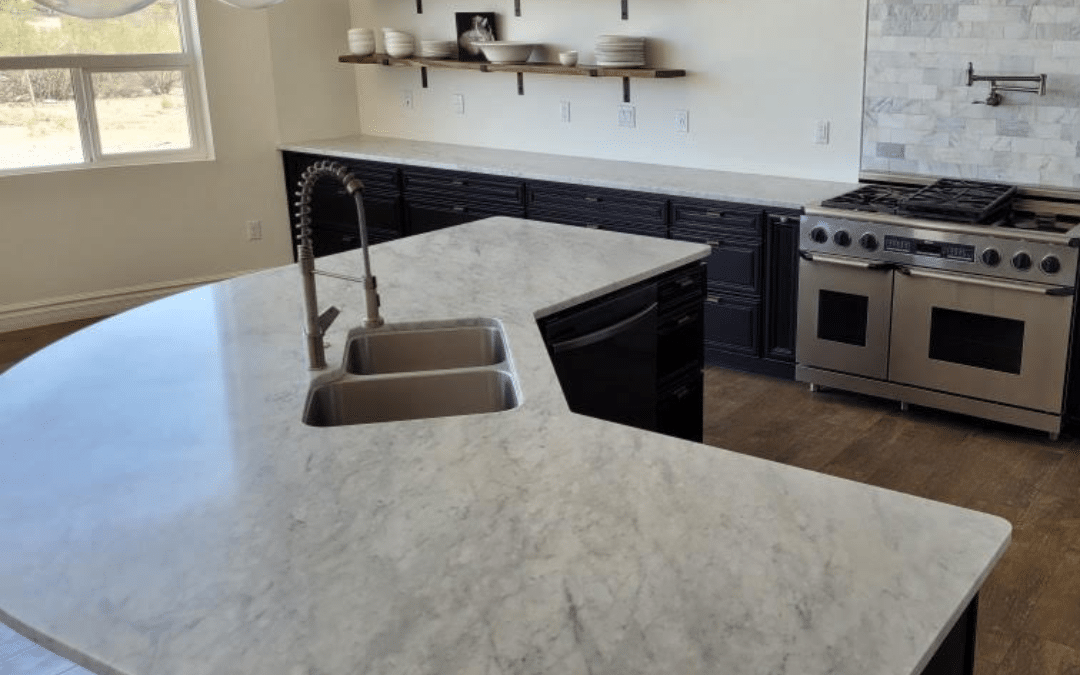You may not realize it, but your natural stone countertops undergo a significant amount of stress throughout the day.
In the kitchen, countertops are where bags are tossed, meals are prepared and eaten, hot cookware is left to cool, heavy appliances are dragged around, and the list goes on.
Likewise, your bathroom countertops endure frequent handwashing and toothbrushing, splashes and spills from personal grooming products, and frequent contact with harsh cleansers. Over time, these activities can take a serious toll on your natural stone.
Like cracks, chips, and staining, etching is one of several forms of damage that can happen to stone if it has not been properly sealed and protected. This blog will help you identify whether or not you have etching and the steps you should take to restore the beauty of your stone surfaces.
What is etching?
Etching refers to the dull or discolored marks left behind when natural stone comes into contact with acidic substances. Unlike staining, which occurs when liquids seep into the surface of the stone, etching is a chemical reaction between the acidic item and the calcium carbonate present in most natural stone varieties.
Common culprits include:
- Food items such as citrus juice, tomato sauce, coffee, cola, and wine
- Cleaning products that contain vinegar, lemon juice, and bleach
In addition, mineral-rich hard water may cause a similar reaction, leaving your stone countertops vulnerable to damage.
Marble countertops before and after restoration. Etching and other types of damage had diminished their shine and left dull, cloudy-looking spots on the surface.
Does etching happen with all stone types?
Some natural stone varieties are more susceptible to etching due to their high calcium content. These include marble, travertine, dolomite, onyx, and limestone. However, all stone types, including granite, are vulnerable to etching if not cared for properly.
How to avoid etching on your stone countertops
Your stone surfaces can easily maintain their beauty and shine with the right care and maintenance. Follow this simple plan to safeguard your stone from damage.
- Make sure your stone countertops are properly sealed with a high-quality sealant upon installation, and resealed regularly throughout their lifetime. The frequency will vary by stone, but the following is a good rule of thumb:
- Marble: Twice a year
- Travertine: Once a year
- Granite: Every 5 years
- Clean spills immediately using a mild, stone-safe cleanser and a non-abrasive pad or cloth; thoroughly dry the area afterward. (Avoid harsh chemical cleansers or those that contain lemon juice or vinegar.)
- Use trivets, coasters, placemats, cutting boards, and similar items to give your countertops an extra layer of protection.
What happens if you already have etching?
If the damage is already done, there is a silver lining: You can save yourself the cost (and hassle) of a full replacement by working with a stone restoration expert that specializes in restoring and repairing granite, marble, travertine, and all types of specialty stone.

